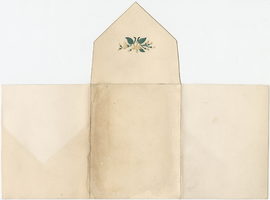Search the Special Collections and Archives Portal
Search Results
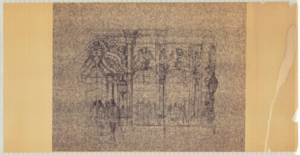
Untitled sketch: figures entering music hall
Date
Archival Collection
Description
Series II. Folies-Bergere production papers, designs, and photographs -- 15th Edition -- Set design drawings by William Morris
Image
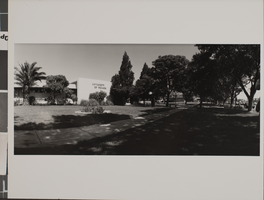
Photograph of Maude Frazier Hall, University of Nevada, Las Vegas, circa 1980s
Date
Archival Collection
Description
Image
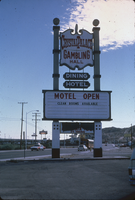
Slide of the neon sign for the Crystal Palace Gambling Hall, Laughlin, Nevada, 1986
Date
Archival Collection
Description
Image

An exterior view of the Silver Slipper Gambling Hall: photographic film
Date
Archival Collection
Description
Image
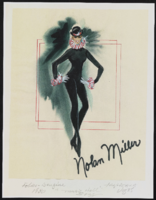
Music Hall Song by Nolan Miller, photocopy
Date
Archival Collection
Description
Series II. Folies-Bergere production papers, designs, and photographs -- 15th Edition partial revision -- Costume design drawings
Mixed Content
Marion Allen remembers Anderson Mess Hall: interview video clip
Date
Description
Marion Allen remembers Anderson Mess Hall
Moving Image
Binion's Gambling Hall: archived website, 2016 to 2022
Level of Description
Archival Collection
Pagination
- Previous page ‹‹
- Page 2
Archival Component
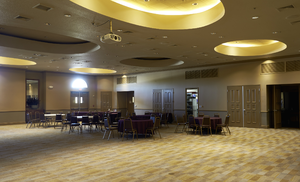
Photograph of Midbar Kodesh Social Hall, Henderson (Nev.), November 10, 2016
Date
Archival Collection
Description
Housed in the first building constructed at Midbar Kodesh Temple, the Social Hall provides space for gatherings. The Social hall was dedicated to the Feldman Family.
Image

Transcript of interview with Mark Hall-Patton by Claytee White and Stefani Evans, August 25, 2016
Date
Archival Collection
Description
Mark Hall-Patton, administrator of Clark County Museums and since 2008 a frequent guest on the popular cable television show Pawn Stars, was born in 1954 in San Diego, California. His mother was a registered nurse and his father served in the United States Navy. From early childhood, Mark’s interest in history and museums shaped his path in life. After graduating high school in Santa Ana, California, he earned his Bachelor’s degree in history at nearby University of California, Irvine. Degree in hand, Mark worked for Bowers Museum in Santa Ana and founded the Anaheim Museum in 1984. He moved to Las Vegas, Nevada in 1993 to create the Howard W. Cannon Aviation Museum in McCarran International Airport. By 2008, Mark had become administrator over all Clark County museums. In this interview, he explains the various ways his involvement with the popular Pawn Stars program has turned “the museum guy” into a brand, introduced production companies to the value of filming in Las Vegas, increased Clark County museum visits and donations, and raised popular awareness of the academic fields of history and museum studies.
Text

